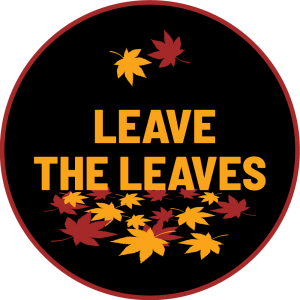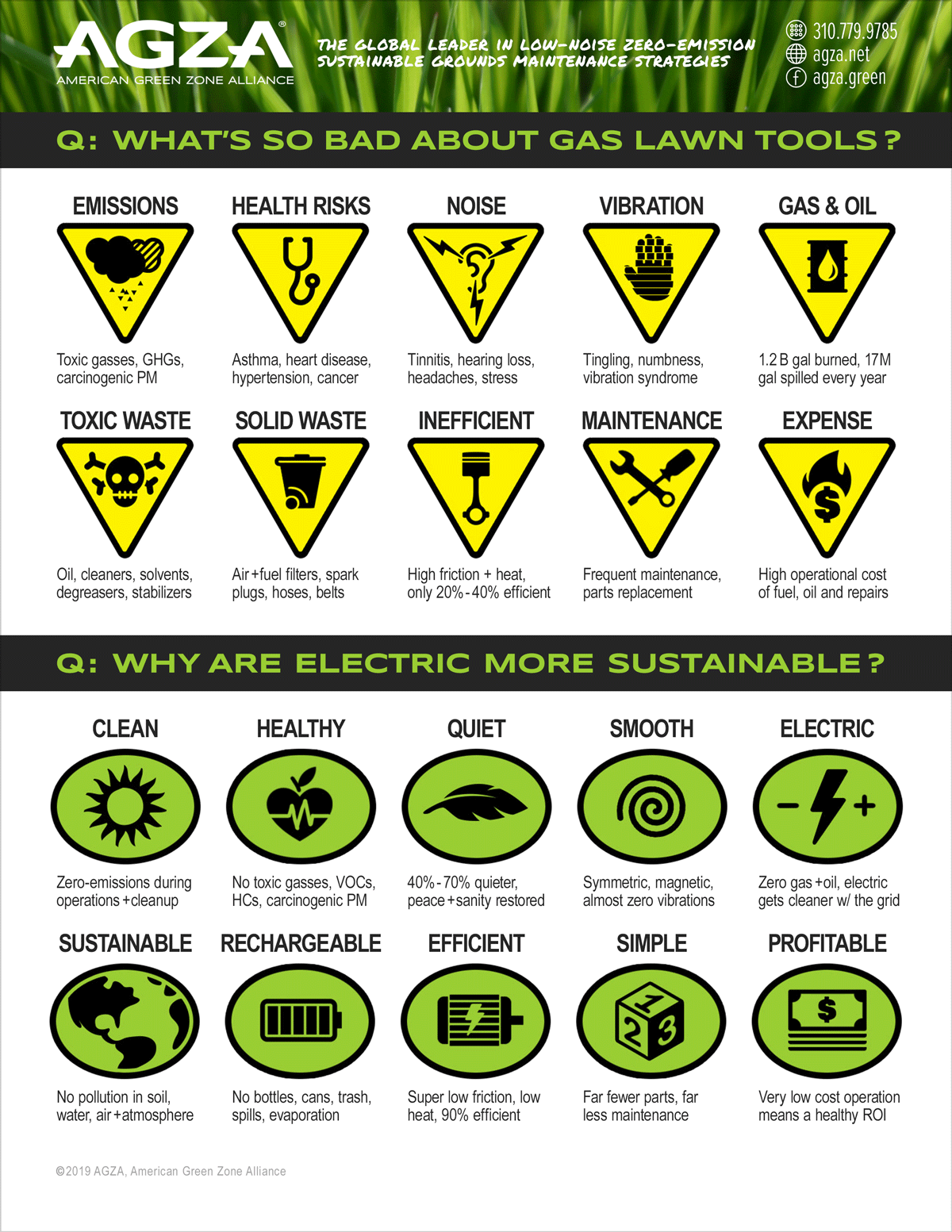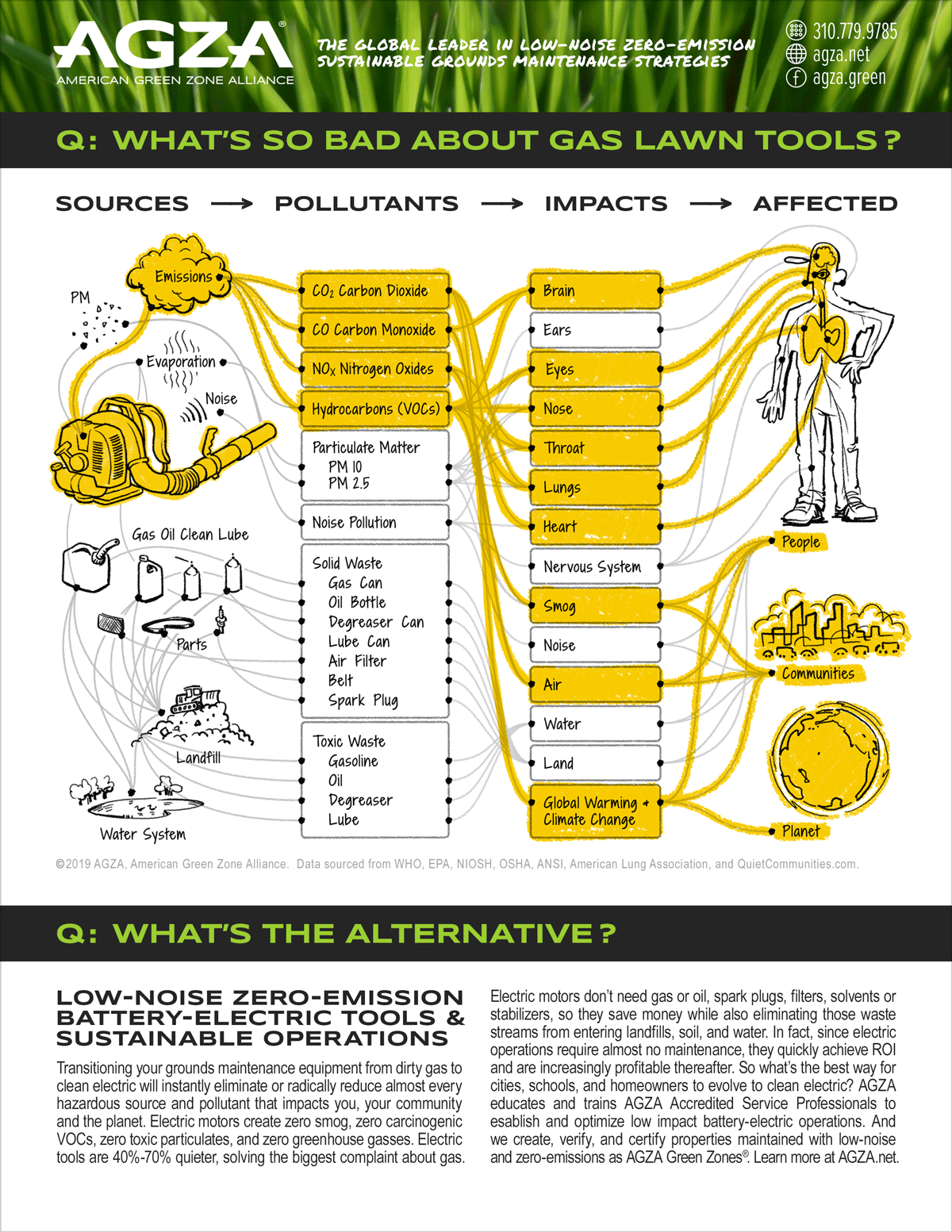 Why?
Why?
I spend a lot of time thinking about how to make my neighborhood and world a better place to live. Sometimes I’m focused on climate change issues – big-ticket items like population growth or stopping clear-cutting. But much of the time I think about how to make change happen on the local level. After years of planting trees; talking to neighbors about planting more trees and trying to figure out how to encourage more quiet and dark (less noisy things like amped-up motorcycles; leaf blowers; car alarms and better outdoor lighting) – I’m coming up against something that’s confusing me. Knowing that some of our actions are going to harm ourselves and others why do we keep doing them? Here are a couple of examples.
Gas-powered leaf blowers and other gas-powered lawn and garden tools. 
The above graphic from AGZA (American Green Zone Alliance) really spells out the problems and solutions in this area. Given that we’ve known for years how polluting and noisy gas-powered leaf blowers are (one example) why do we continue to allow their use? And this is often something we do to ourselves. The person using the device is probably facing the most harm. Whether it’s a worker who uses a leaf-blower repeatedly, or someone using one once a year – in either case – that person is putting themselves at a health risk that is unnecessary. Join a group working on this issue.
Here’s an example from the noise department. Using one’s car fob to lock a vehicle – setting off the horn. At first, this probably seemed convenient – but I hope that most people agree that it’s actually a nuisance and should never have been allowed to be developed by car companies. Most cars and trucks can be adjusted to stop this from happening. Hearing a car horn go off is usually a warning sound that used to be used by vehicle operators to indicate to others that there is some kind of emergency happening. Though the sound of a car horn going off is a nuisance for people in the vicinity – the person most harmed by the noise is the person closest to the sound. I’ve written about the dangers of losing one’s hearing before, here. If you love hearing music, let’s say – figure out how to dismantle this system for yourself. And, again, the question I posed at the opening – why, if we know that a system is harming our health, do we let it persist?
From the lighting department. The City of Portland is often an early adopter. We chose to switch to LED street lights a few years back but in our excitement chose lights that are too bright and glaring. These new lamps make everything much too bright and make walking around at night less pleasurable than it used to be. They also make driving more hazardous as the lights also blind drivers. Why, when we know there’s an issue with these lamps didn’t we stop installing them once it became obvious they were too bright? And why do we keep them installed when there are better choices. This is true for residential lighting, as well. If you walk outside of your house at night and can’t look at the lighting of your house for more than 10 seconds then please consider replacing the bulbs and/or fixtures you have to improve the experience for your neighbors. And, for yourself – because who is likely going to be seeing the lighting on your house most? You.
Living in a quieter and darker place is good for all living creatures. Keeping all of our tree canopy standing which provides our oxygen would also be something we could do to make our lives better. I love to think about my neighborhood and how our lives can be improved. I believe by paying attention to the ways we’re hurting ourselves and others and making changes to our behavior we’ll create a healthier and happier environment. Who knows, maybe we’ll be able to see more stars one day.
For a better world, Albert Kaufman, 3.5.19





